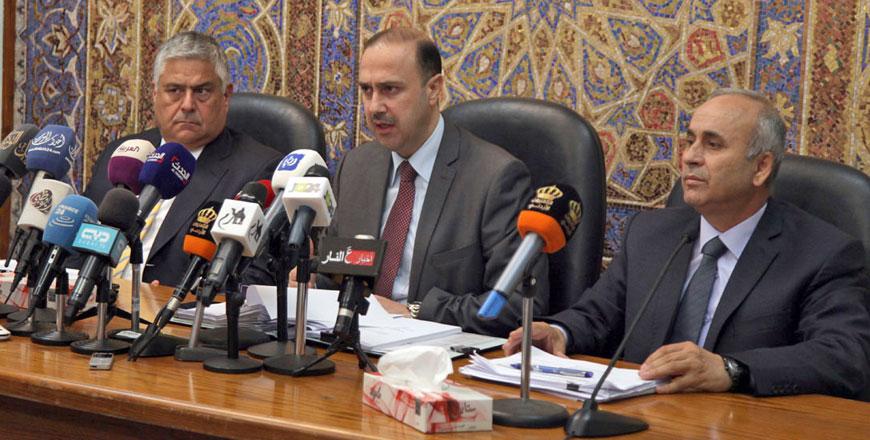You are here
Government likely to increase income tax on banks
By Mohammad Ghazal - Sep 21,2018 - Last updated at Sep 21,2018
AMMAN — The government will reconsider the income tax on banks in the new income tax draft bill, an official said on Thursday.
“We will revisit the percentage of the income tax imposed on banks following several complaints and remarks we have been receiving recently calling for that,” Minister of State for Legal Affairs Mubarak Abu Yamin told The Jordan Times on Thursday.
The current income tax on banks is 35 per cent. In the previous income tax bill, the percentage was proposed to be increased to 40, but in the current one it was kept without any change, which triggered criticism.
“The final draft of the bill that will be referred to the Lower House will take all comments into account and the decisions on that will be reflected in the draft law,” the minister said.
On the commotion witnessed during recent meetings between Cabinet members and local community members to discuss the bill, the minister said: “This is a healthy and positive trend.”
“Frustration amongst citizens is understandable because there had been serious dialogue with citizens and no genuine participation by them in the decision making process…. It is very important to continue the field visits,” the minister said.
The bill, which has been discussed with several segments of society is part of reforms the government pledged to take under a $700 million Extended Fund Facility (EFF) reached between Jordan and the IMF in 2016.
Under the 36-month EFF programme, the two sides agreed on six conditions that aim at reducing public debt to safe levels and stimulating the economy.
In a statement on Thursday, published by the Jordan News Agency, Petra, Deputy Prime Minister and Minister of State Rajai Muasher said the IMF asked Jordan to seek the endorsement of the income tax draft bill in its current form.
“The IMF requested endorsing the bill as is and the government is studying citizens’ remarks about the legislation and is constitutionally committed to the principle of separation between authorities,” he said.
However, he stressed that the final decision on the final draft of the legislation is the responsibility of the Parliament.
But his remarks triggered a storm. Lower House Speaker Atef Tarawneh responded with a statement stressing that the legislature “does not receive instructions or dictations from the IMF”, adding that the House will be guided by “nothing but the higher national interests” when it receives the suggested amendments to the Income Tax Law.
The speaker expressed shock over the remarks of the minister.
Economist Wajdi Makhamreh said the government has been giving mixed remarks that have worsened the situation and added to public anger.
“The government has said earlier that it drafted the law without any external pressure and that sovereign decisions are made without interference by anyone or any entity. However, now it claims that the IMF is requesting that the bill to be passed as is,” he told The Jordan Times.
“This is likely to cause a friction between the government and lawmakers, who, constitutionally, have the final say,” he said.
Related Articles
AMMAN — The government on Monday endorsed the income tax draft law and said it will refer it to the Lower House on Tuesday to get it through
AMMAN — Prime Minister Abdullah Ensour and the government’s economic team on Tuesday discussed the income tax draft law to introduce amendme
AMMAN — International Monetary Fund (IMF) mission on Sunday started its visit to the Kingdom as part of efforts to support and follow up on
















